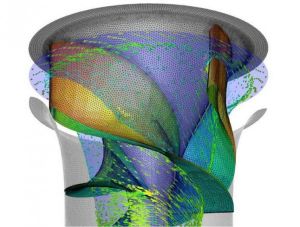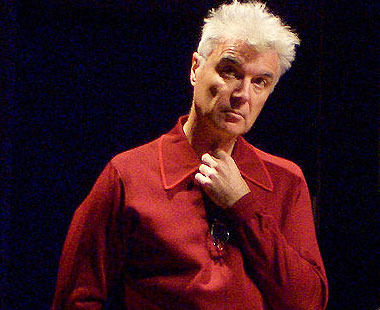 David Byrne.For a city widely seen as a haven for progressive thought, New York has put up surprisingly stiff resistance to helping cyclists get where they’re going in one piece. A year ago, before Wall Street greed had a monopoly on the New York protest scene, East Village residents gathered to voice concern over all the “dangerous bike riders” in their neighborhood. And last March, a group with the woefully inaccurate name “Neighbors for Better Bike Lanes” sued the city over a three-mile bike lane alongside Prospect Park in Brooklyn. (A judge threw out the case because the statute of limitations had expired.)
David Byrne.For a city widely seen as a haven for progressive thought, New York has put up surprisingly stiff resistance to helping cyclists get where they’re going in one piece. A year ago, before Wall Street greed had a monopoly on the New York protest scene, East Village residents gathered to voice concern over all the “dangerous bike riders” in their neighborhood. And last March, a group with the woefully inaccurate name “Neighbors for Better Bike Lanes” sued the city over a three-mile bike lane alongside Prospect Park in Brooklyn. (A judge threw out the case because the statute of limitations had expired.)
None of this has deterred Janette Sadik-Khan, the NYC Department of Transportation commissioner. Since her appointment by Mayor Bloomberg in 2007, she has overseen the addition of over 250 miles of bike lanes and pedestrian walkways and has worked to implement a long-awaited bike share program that will launch next summer. On Monday night, Sadik-Khan joined musician/bicycle enthusiast David Byrne at the Center for Architecture to discuss City Hall’s campaign to convince 8 million people that New York can become a bike-friendly town.
Byrne provided a global perspective on transportation reform. The ex-Talking Heads front man brings along a folding bicycle whenever he travels so he can explore world cities on two wheels — an experience he described in his 2009 book, Bicycle Diaries, as “navigating the neural pathways of some vast global mind.” Byrne has also been biking in New York since the early ’80s, and even designed bike racks around the city.
Byrne described urban renewal projects in the “shantytowns” surrounding Bogota, Colombia, that provide networks of bike lanes, pedestrian zones, and other public spaces for the city’s most impoverished communities. He wondered why nobody has tried something similar in East New York, one of the poorest neighborhoods in the five boroughs: “I don’t know when was the last time any of you have been to East New York. It’s a borderline shantytown, I would say. Borderline Eastern Europe.”
Many New Yorkers are still stuck on the idea that bike-friendly policies only benefit “the few” — a perception perhaps fed by the class of young hipsters and bohemians zipping around Williamsburg, the East Village, and Bushwick.
But Sadik-Khan argues that the opposition toward initiatives like bike shares, while vocal, does not always speak for the majority.
“Seventy-two percent of New Yorkers support the bike share program,” she said, citing a poll conducted by Quinnipiac University. “If this was a political campaign it would be a landslide.
So who are the 28 percent who hate on bikes? Among the more high-profile opponents to the Prospect Park bike lane was Iris Weinshall, Sadik-Khan’s predecessor and the wife of Democratic Sen. Chuck Schumer. Meanwhile, Brooklyn Borough President Marty Markowitz went so far as to call the cool and collected commissioner a “zealot” for wanting to “make it hard for those that choose to own their automobiles.”
Sadik-Khan shrugs off these criticisms. “Some people have tried to paint bike lanes as elitist, which is really hard to believe because [the bicycle] is the most affordable way to get around town other than walking, and it’s really heavily used by a wide range of social and ethnic groups.”
Byrne’s soulful musings and Sadik-Khan’s civic pragmatism shared a common theme: the need for governments to cooperate with the private sector on these projects.
“We’ve taken a page out of London’s proposal, and so it’s going to be 100 percent corporate sponsorship that’s going to pay for the program,” says Sadik-Khan. “No taxpayer dollars at all.”
Byrne agreed that, if we want to reduce our culture’s resistance to sharing the road, we’ll need to get businesses on board — including automakers. As he put it, we’ll have to “convince the car companies that they should be in the transportation business, not just the car business.” (If this GM ad campaign is any indication, some of them still have a long way to go.)
Whether the funding comes from the auto industry, other private companies, or taxpayers, it’s a relief to see New York City finally catching up to its progressive reputation when it comes to bike initiatives. Sadik-Khan understands that creating a bike-friendly environment is about more than drawing lines on a road. It’s about ensuring that cyclists don’t feel punished for choosing a cleaner, quieter mode of transportation.



